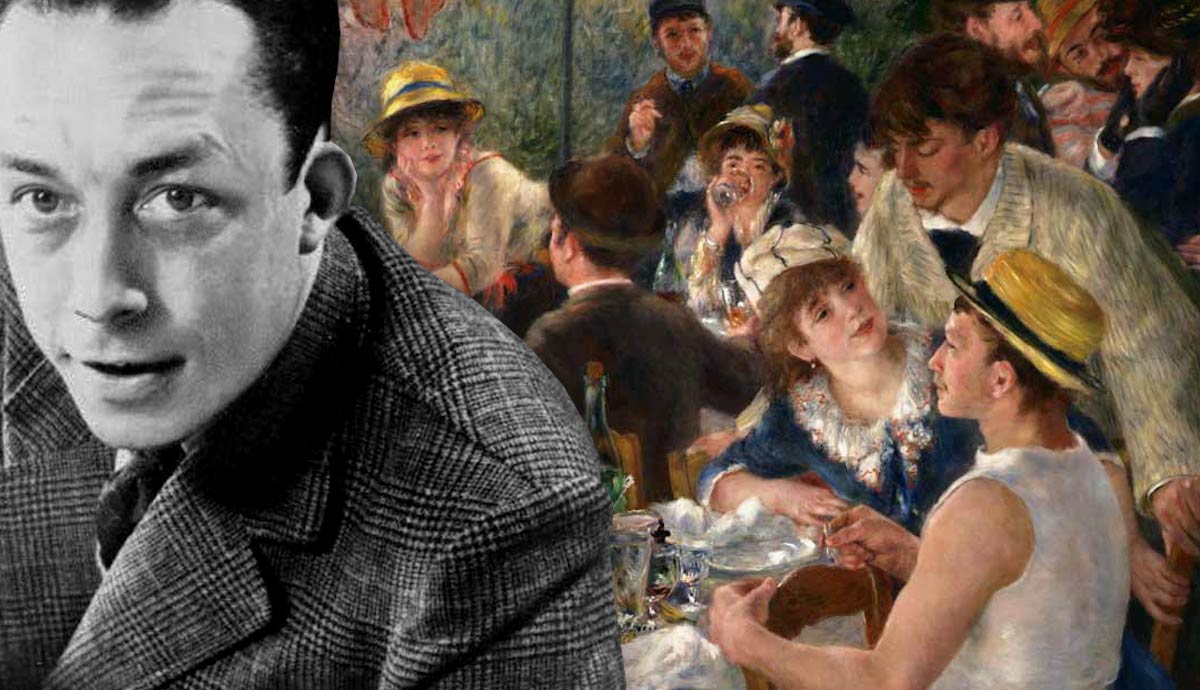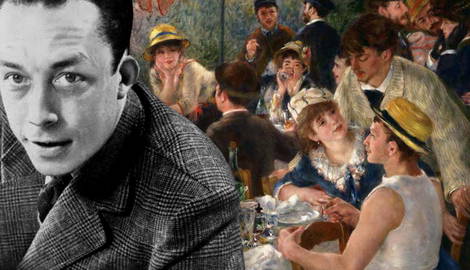
Throughout the course of history, many thinkers have tried to define happiness in a multitude of ways. They have given examples based on the society and culture of their time and were influenced by their study of philosophy. Indeed, philosophers have had their own ideas about what makes people happy—from Aristotle’s eudaimonia to Kant’s emphasis on moral obligation. But is it possible that there are some things they all agree on?
What Is Happiness?

Happiness is one of the most desirable human states. What exactly it is, however, is quite hard to determine. First of all, happiness is an emotional state which various factors can cause. Every person understands what brings them happiness and under what life circumstances.
For one person, happiness can be associated with achieving material well-being; for another, with the feeling of love and closeness of loved ones; and for the third, with the awareness of inner balance and harmony. However, no matter what the reason for happiness may be, there are always concomitant positive emotions, such as joy, satisfaction, gratitude, love, and so on.
People often seek happiness but do not know how to become such people. Some even claim that happiness can be purchased for money or reached through a high position in society.
However, research proves that material well-being and social status occupy a secondary place in the agenda of happiness. The most important things are health, relations with relatives, and general satisfaction with life.
Centuries of philosophical debate on what constitutes true happiness and its links to living well have thrown up a plethora of ideas, all serving useful insights into this most elusive state of mind.
The Concept of Happiness in Ancient Philosophy

Two of the greatest ancient Greek philosophers who showed mankind two different ways to happiness were Aristotle and Epicurus.
Aristotle was sure that happiness is “eudaimonia,” which could be translated from Greek as “living happily.” He said that “happiness” is the highest good a man can have. He said that happiness is not a state of feeling but an activity, the state of something brought about by living well.
For Aristotle, living virtuously meant living bravely or wisely in a happy manner. He supposed the following to be the reason: through being virtuous our whole life, we seek fulfillment.
However, Epicurus deviates from this viewpoint: he believes that pleasure is not simply an aspect of happiness – rather, it is at the very core of what makes us happy.
According to Epicureanism, being content does not come from thinking deep thoughts or doing good things. Rather, it comes from doing certain things and avoiding others. For example, someone might be happy because they do not feel pain and have friends who are nice to them.
Epicurus also tells people they should not want more than absolutely necessary (and instead aim for tranquility). However, simple pleasures can still be even for those satisfied with these goals.
Still, Aristotle has a different idea about how people can find fulfillment today (e.g., making lots of money). But compared with most philosophers nowadays, his ideas on personal growth still matter.
Both philosophers agree that we should critically examine our lives if we want to improve our lives and enjoy life more fully. They suggest that choices affect whether everyday activities bring joy or pass unnoticed.
Happiness in Medieval Philosophy

Indeed, reflections of some of the leading thinkers in the domain of medieval philosophy, including St. Augustine and Thomas Aquinas, generously open further dimensions in the pursuit of ultimate fulfillment and spiritual well-being.
St. Augustine, the leading exponent of early Christian thinking, said that real happiness lay in the attainment of the beatitude, which he elaborated on as the ultimate union with God. Augustine said that real happiness can only be achieved through faith and divine grace, surpassing all earthly possessions’ pleasures and pursuits.
He considered happiness not an emotion but a state of mind and soul, with an infinite eternity of bliss due to the harmonious existence between human beings and the divine.
Thomas Aquinas was the greatest Scholastic theologian who succeeded in synthesizing Aristotle’s teachings with Christian doctrine. He argued that true happiness could be had partly on earth through virtuous living guided by reason and moral virtues.
In the thought of Aquinas, even though temporal happiness is a possibility in pursuits on earth, true happiness could only come from full union with God in life after death.
For example, take a dedicated Christian who finds peace and happiness through prayer and meditation, living to develop qualities such as humility and kindness to lead their soul to God. It is the embodiment of Augustine’s ideal of beatitude.
Similarly, the inner balance and ethical life that a moral philosopher would live while pursuing spiritual enlightenment would be akin to Aquinas’s regard for obtaining true happiness through virtuous living based on reason.
In other words, these views of St. Augustine and Thomas Aquinas express a good deal of the relation between faith, reason, virtue, and spiritual perfection in contemplating an enduring form of happiness.
Peculiarities of the Concept of Happiness in Modern Philosophy

In the context of modern philosophy, the notion of happiness acquires multiform and fascinating features. Take, for instance, the opposing views of Immanuel Kant and John Stuart Mill.
For Kant, the giant of the Enlightenment era, he hit a blow against the conventional view that happiness is the highest aim of human existence. The first priority for Kant is moral duty, so his categorical imperative postulates acting from a sense of duty once again, not from self-interest. The pursuit of happiness is purely a secondary pursuit with the purpose of moral principle, and virtue is its only reward.
On the other hand, John Stuart Mill’s utilitarianism philosophy proposes a totally new vision of happiness. According to Mill, happiness means pleasure and the lack of pain—a purely hedonistic approach that postulates the maximization of general well-being and satisfaction of the largest number.
He argued that actions that bring out the greatest amount of pleasure while suffering are reduced to the minimum, hence promoting utility as the main criterion of ethical decision-making.
Mill also proposed an interesting difference in the types of pleasures—that intellectual and moral pleasures are of a higher value than mere bodily or physical enjoyment.
In this sense, Mill outlined a higher-level and more sophisticated approach to the pursuit of happiness, elevating higher intellectual pursuits and ethical considerations above simple sensory indulgence.
These views on defining and pursuing happiness, expressed within modern philosophical thought, define the subject in both its simplicity and complexity in one manner.
Characteristics of Happiness in Contemporary Philosophy

In the realm of contemporary philosophy, there are two main ways of thinking about happiness: existentialism and positive psychology. These might not seem like they have much in common, but each one can tell us quite a bit about what it means to be happy today.
Existentialist Approach

Existentialists like Jean-Paul Sartre and Albert Camus argue that being truly happy is complicated because life is so complex. They say that just because life doesn’t come with an instruction book telling you how to be happy (or anything else) doesn’t mean you can’t find your own way there.
Instead of seeing this lack of direction as sad or depressing—which is what some people think when they first hear it—existentialists see it as freeing.
Thinkers in this tradition would agree with Sartre’s famous statement, “Existence precedes essence.” Put simply, these three words mean that instead of having an already-set meaning or purpose waiting for us to discover (essence), we create them through our choices and actions (existence).
Take, for instance, the myth of Sisyphus by Camus. In his imaginative version of eternal punishment, Sisyphus symbolizes human strength as he finds contentment in knowing that his pointless toil is all there is.
Positive Psychology Approach

Meanwhile, positive psychology—led by people like Martin Seligman—takes a different approach altogether. It shifts focus from pondering why we are alive to figuring out what enables us to lead enjoyable lives.
Using data (rather than existential arguments), Seligman and colleagues identified five key elements: feeling good (experiencing frequent positive emotions), engagement (living so fully in the moment that everything else disappears), having worthwhile goals whose pursuit keeps you busy but never bored, being part something bigger than yourself, and accomplishment.
For example, Seligman’s PERMA model presents these components as the blueprint for happiness. It stresses that life is made meaningful not just by momentary joys but also by lasting connections and engagements.
Positive psychology uses experiences like losing yourself in a hobby you love, building deep friendships, or achieving goals to show what makes people feel good about their lives (or have “well-being”).
So, What Is Happiness?

Happiness, that state of being that everyone wants but no one can quite define, means different things to different people depending on what era they lived in. For example, Aristotle might have said it meant living virtuously and realizing your potential. Kant has said happiness comes from fulfilling our moral duty or acting according to the rules we all agree on.
For existentialists like Sartre or Camus, though, there isn’t just one answer because each person must decide how best they can be true to themselves while still respecting others – even if society tells them otherwise! Others feel happiest when their lives are full of positive emotions (positive psychologists call this “hedonic” well-being).
The different interpretations offered here demonstrate that happiness is a complex concept. It is not simply about feeling good or having fun. Happiness also involves experiencing meaning and purpose, being satisfied with life overall, and acting morally in our relationships with others.
In short, it encompasses everything we want – yet we can only achieve it by thinking carefully about our values and behaving ethically.
Happiness isn’t just one thing: there are many ways to be happy, too, since what makes us happy depends on what we value (or think matters in life) individually. So, there’s no fixed definition of happiness itself. Instead, each generation gets to work out for themselves what kinds of happiness they’re chasing!










